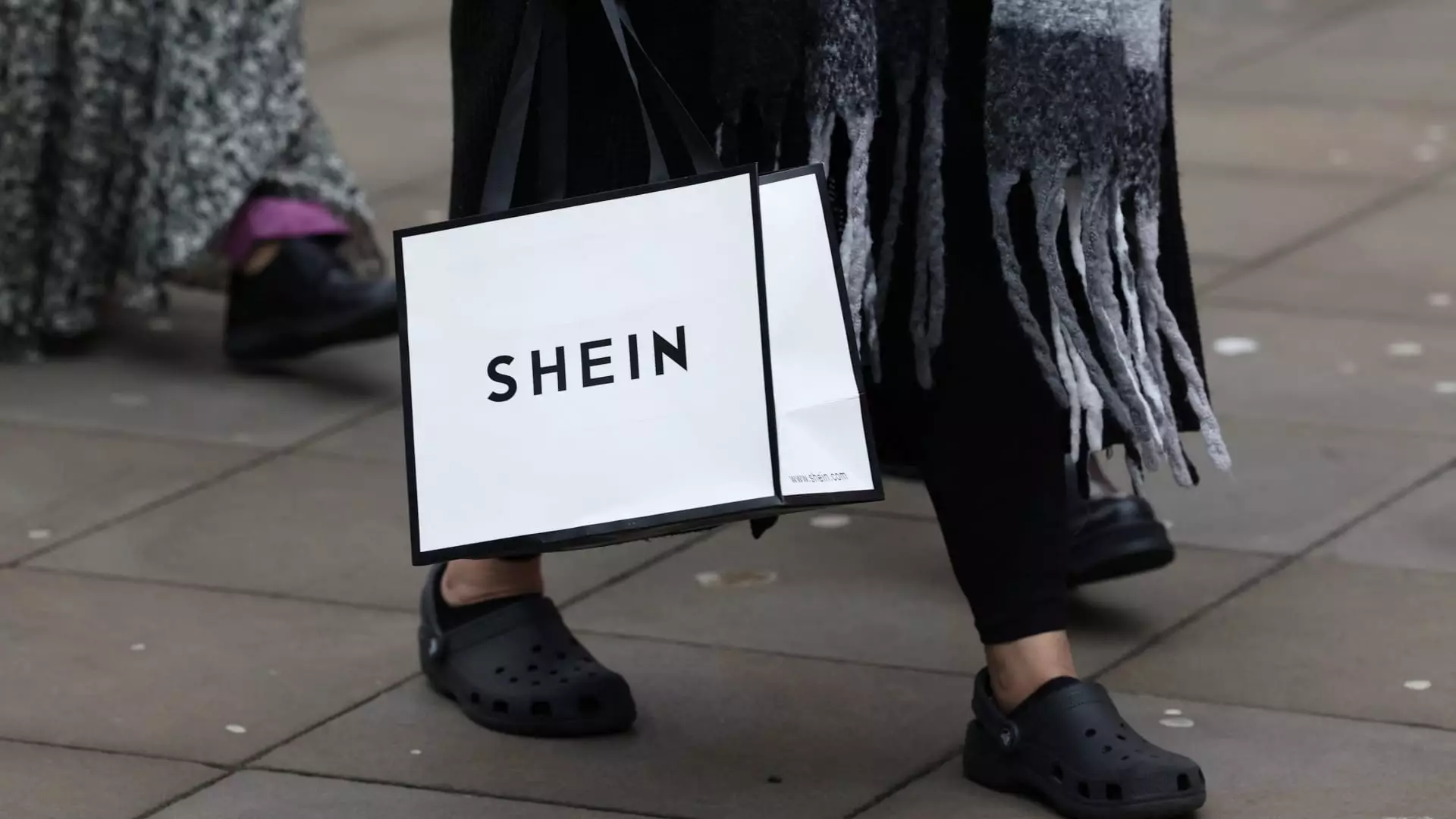Shein, the controversial fast fashion retailer, is once again attempting to polish its public image as it gears up for a potential public listing in London. The company has released a series of statements asserting its commitment to consumer safety and sustainability, all while it navigates the choppy waters of regulatory scrutiny. This comes in the wake of Shein’s first product safety recall in the United States since 2021, which has drawn attention to its operational practices and ethical compliance. The implications of this recall extend far beyond a mere logistics issue; they reflect a corporate strategy aimed at assuaging fears among lawmakers and consumers alike.
In an effort to bolster its credibility, Shein announced that it conducted over two million product safety tests last year through reputable laboratories, including Bureau Veritas and Intertek. The company emphasized that its vendors must provide comprehensive documentation for various product categories, such as toys and electronics. This announcement signifies a departure from the traditional practices seen in online retail, where responsibility for product safety often falls entirely on third-party sellers.
Shein’s proactive approach—implementing its own safety tests rather than relying solely on vendor compliance—sets a new precedent in the fast fashion sector. While most online platforms merely demand that sellers conduct their own safety evaluations, Shein’s strategy highlights the company’s determination to safeguard its reputation and address consumer concerns proactively.
Simultaneously, Shein is striving to prioritize sustainability amidst growing scrutiny over its labor practices. The retailer’s latest press release included not only commitments to product safety but also a new nonprofit foundation aimed at fostering social responsibility. This move can be perceived as an attempt to create a nuanced narrative around its operations, particularly in light of accusations relating to unsafe products and unethical labor practices.
The timing of these initiatives coincides with a climate of skepticism regarding the company’s supply chain. U.K. lawmakers have raised pressing questions about Shein’s sourcing practices, particularly concerning claims about labor exploitation in regions like Xinjiang, China. Shein’s general counsel in Europe, Yinan Zhu, faced intense scrutiny during a recent parliamentary hearing, where lawmakers expressed their dissatisfaction with the company’s evasive responses regarding the sourcing of cotton and the potential for forced labor.
The Challenges Ahead: Legislative Pushback
In the wake of Zhu’s testimony, lawmakers expressed concerns over the lack of transparency surrounding Shein’s supply chain. The committee chairman, Liam Byrne, vocalized frustration at what he termed “bordering on contempt” behavior from Shein’s representatives. This is a significant hurdle for a company seeking to establish trust with both consumers and regulators. The stark contrast between Shein’s previous public proclamations about ethical sourcing—particularly regarding cotton from China—and its less definitive stance during the parliamentary hearing poses a substantial reputational risk.
As Shein jockeys for a public listing, it must balance its charm offensive with the reality of its operational practices. Market analysts suggest that the company’s approach could backfire if public sentiment continues to turn against fast fashion on ethical grounds. The immediate effects of this backlash are evidenced in the consumer responses to the recent product recalls, as companies are increasingly held accountable for the integrity of their supply chains.
Ultimately, Shein’s path to a successful public listing in London hinges not only on its recent commitments to safety and sustainability but also on its ability to address the systemic challenges that arise from its operational model. The precarious intersection of safety, ethical sourcing, and public perception requires a delicate balance. Shein’s efforts to recalibrate public opinion may hold the key to its success, but it is clear that meaningful reforms are necessary to navigate the complexities of corporate responsibility in today’s marketplace.
As the fast fashion giant moves forward, the road ahead is rife with opportunities for growth and reform. However, the organization must demonstrate its willingness to confront uncomfortable truths within its supply chain, or risk alienating the very consumers it aims to win over. The ongoing dialogue surrounding Shein will undoubtedly continue to shape its prospects, making transparency and accountability critical aspects of its evolution as a leading player in the fast fashion industry.

